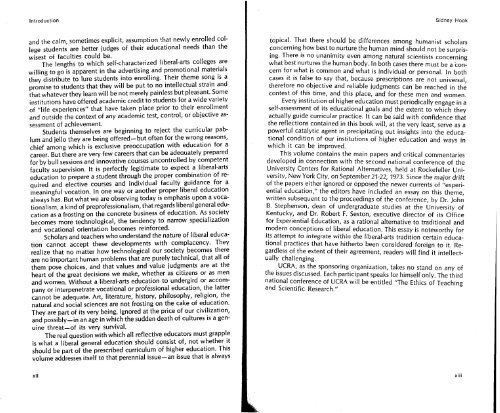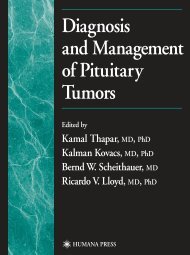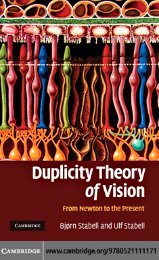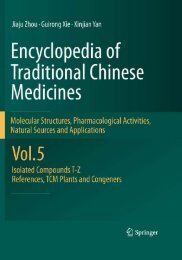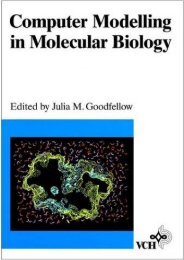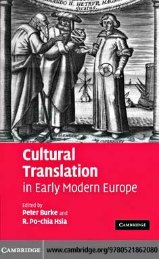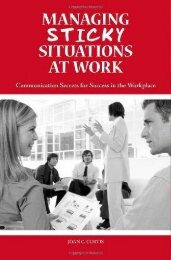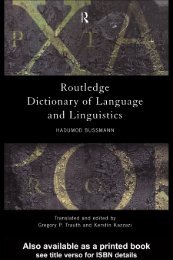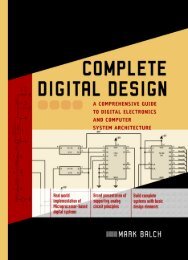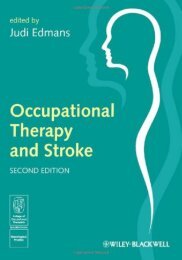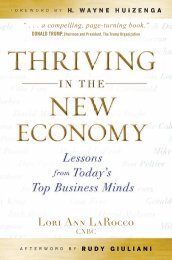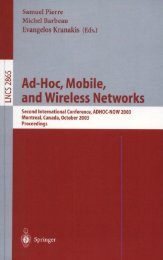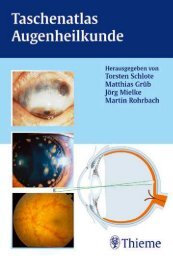The Philosophy of the Curriculum-The Need for General ...
The Philosophy of the Curriculum-The Need for General ...
The Philosophy of the Curriculum-The Need for General ...
You also want an ePaper? Increase the reach of your titles
YUMPU automatically turns print PDFs into web optimized ePapers that Google loves.
IntroductionSidney Hookand <strong>the</strong> calm, sometimes explicit, assumption that newly enrolled collegestudents are better judges <strong>of</strong> <strong>the</strong>ir educational needs than <strong>the</strong>wisest <strong>of</strong> faculties could be.<strong>The</strong> lengths to which self-characterized liberal-arts colleges arewilling to go is apparent in <strong>the</strong> advertising and promotional materials<strong>the</strong>y distribute to lure students into enrolling. <strong>The</strong>ir <strong>the</strong>me song is apromise to students that <strong>the</strong>y will be put to no intellectual strain andthat whatever <strong>the</strong>y learn will be not merely painless but pleasant. Someinstitutions have <strong>of</strong>fered academic credit to students <strong>for</strong> a wide variety<strong>of</strong> "life experiences" that have taken place prior to <strong>the</strong>ir enrollmentand outside <strong>the</strong> context <strong>of</strong> any academic test, control, or objective assessment<strong>of</strong> achievement.Students <strong>the</strong>mselves are beginning to reject <strong>the</strong> curricular pablumand jello <strong>the</strong>y are being <strong>of</strong>fered-but <strong>of</strong>ten <strong>for</strong> <strong>the</strong> wrong reasons,chief among which is exclusive preoccupation with education <strong>for</strong> acareer. But <strong>the</strong>re are very few careers that can be adeauately prepared<strong>for</strong> by bull sessions and innovative courses uncontrolled by competentfaculty supervision. It is perfectly legitimate to expect a liberal-artseducation to prepare a student through <strong>the</strong> proper combination <strong>of</strong> requiredand elective courses and individual faculty guidance <strong>for</strong> ameaningful vocation. In one way or ano<strong>the</strong>r proper liberal educationalways has. But what we are observing today is emphasis upon a vocationalism,a kind <strong>of</strong> prepr<strong>of</strong>essionalism, that regards liberal general educationas a frosting on <strong>the</strong> concrete business <strong>of</strong> education. As societybecomes more technological, <strong>the</strong> tendency to narrow specializationand vocational orientation becomes rein<strong>for</strong>ced.Scholars and teachers who understand <strong>the</strong> nature <strong>of</strong> liberal educationcannot accept <strong>the</strong>se developments with complacency. <strong>The</strong>yrealize that no matter how technological our society becomes <strong>the</strong>reare no important human problems that are purely technical, that all <strong>of</strong><strong>the</strong>m pose choices, and that values and value judgments are at <strong>the</strong>heart <strong>of</strong> <strong>the</strong> great decisions we make, whe<strong>the</strong>r as citizens or as menand women. Without a liberal-arts education to undergird or accompanyor interpenetrate vocational or pr<strong>of</strong>essional education, <strong>the</strong> lattercannot be adequate. Art, literature, history, philosophy, religion, <strong>the</strong>natural and social sciences are not frosting on <strong>the</strong> cake <strong>of</strong> education.<strong>The</strong>y are part <strong>of</strong> its very being, ignored at <strong>the</strong> price <strong>of</strong> our civilization,and possibly-in an age in which <strong>the</strong> sudden death <strong>of</strong> cultures is a genuinethreat-<strong>of</strong> its very survival.<strong>The</strong> real question with which all reflective educators must grappleis what a liberal general education should consist <strong>of</strong>, not whe<strong>the</strong>r itshould be part <strong>of</strong> <strong>the</strong> prescribed curriculum <strong>of</strong> higher education. Thisvolume addresses itself to that perennial issue-an issue that is alwaystopical. That <strong>the</strong>re should be differences among humanist scholarsconcerning how best to nurture <strong>the</strong> human mind should not be surprising.<strong>The</strong>re is no unanimity even among natural scientists concerningwhat best nurtures <strong>the</strong> human body. In both cases <strong>the</strong>re must be a concern<strong>for</strong> what is common and what is individual or personal. In bothcases it is false to szy that, because prescriptions are not universal,<strong>the</strong>re<strong>for</strong>e no objective and reliable judgments can be reached in <strong>the</strong>context <strong>of</strong> this time, and this place, and <strong>for</strong> <strong>the</strong>se men and women.Every institution <strong>of</strong> higher education must periodically engage in aself-assessment <strong>of</strong> its educational goals and <strong>the</strong> extent to which <strong>the</strong>yactually guide curricular practice. It can be said with confidence that<strong>the</strong> reflections contained in this book will, at <strong>the</strong> very least, serve as apowerful catalytic agent in precipitating out insights into <strong>the</strong> educationalcondition <strong>of</strong> our institutions <strong>of</strong> higher education and ways inwhich it can be improved.This volume contains <strong>the</strong> main papers and critical commentariesdeveloped in connection with <strong>the</strong> second national conference <strong>of</strong> <strong>the</strong>University Centers <strong>for</strong> Rational Alternatives, held at Rockefeller University,New York City, on September 27-22, 1973. Since <strong>the</strong> major drift<strong>of</strong> <strong>the</strong> papers ei<strong>the</strong>r ignored or opposed <strong>the</strong> newer currents <strong>of</strong> "experientialeducation," <strong>the</strong> editors have included an essay on this <strong>the</strong>me,written subsequent to <strong>the</strong> proceedings <strong>of</strong> <strong>the</strong> conference, by Dr. JohnB. Stephenson, dean <strong>of</strong> undergraduate studies at <strong>the</strong> Universitv <strong>of</strong>Kentucky, and Dr. Robert F. Sexton, executive director <strong>of</strong> its <strong>of</strong>fice<strong>for</strong> Experiential Education, as a rational alternative to traditional andmodern conceptions <strong>of</strong> liberal education. This essay is noteworthy <strong>for</strong>its attempt to integrate within <strong>the</strong> liberal-arts tradition certain educationalpractices that have hi<strong>the</strong>rto been considered <strong>for</strong>eign to it. Regardless<strong>of</strong> <strong>the</strong> extent <strong>of</strong> <strong>the</strong>ir agreement, readers will find it intellectuallychallenging.UCRA, as <strong>the</strong> sponsoring organization, takes no stand on any <strong>of</strong><strong>the</strong> issues discussed. Each participant speaks <strong>for</strong> himself only. <strong>The</strong> thirdnational conference <strong>of</strong> UCRA will be entitled "<strong>The</strong> Ethics <strong>of</strong> Teachingand Scientific Research."xiixiii


